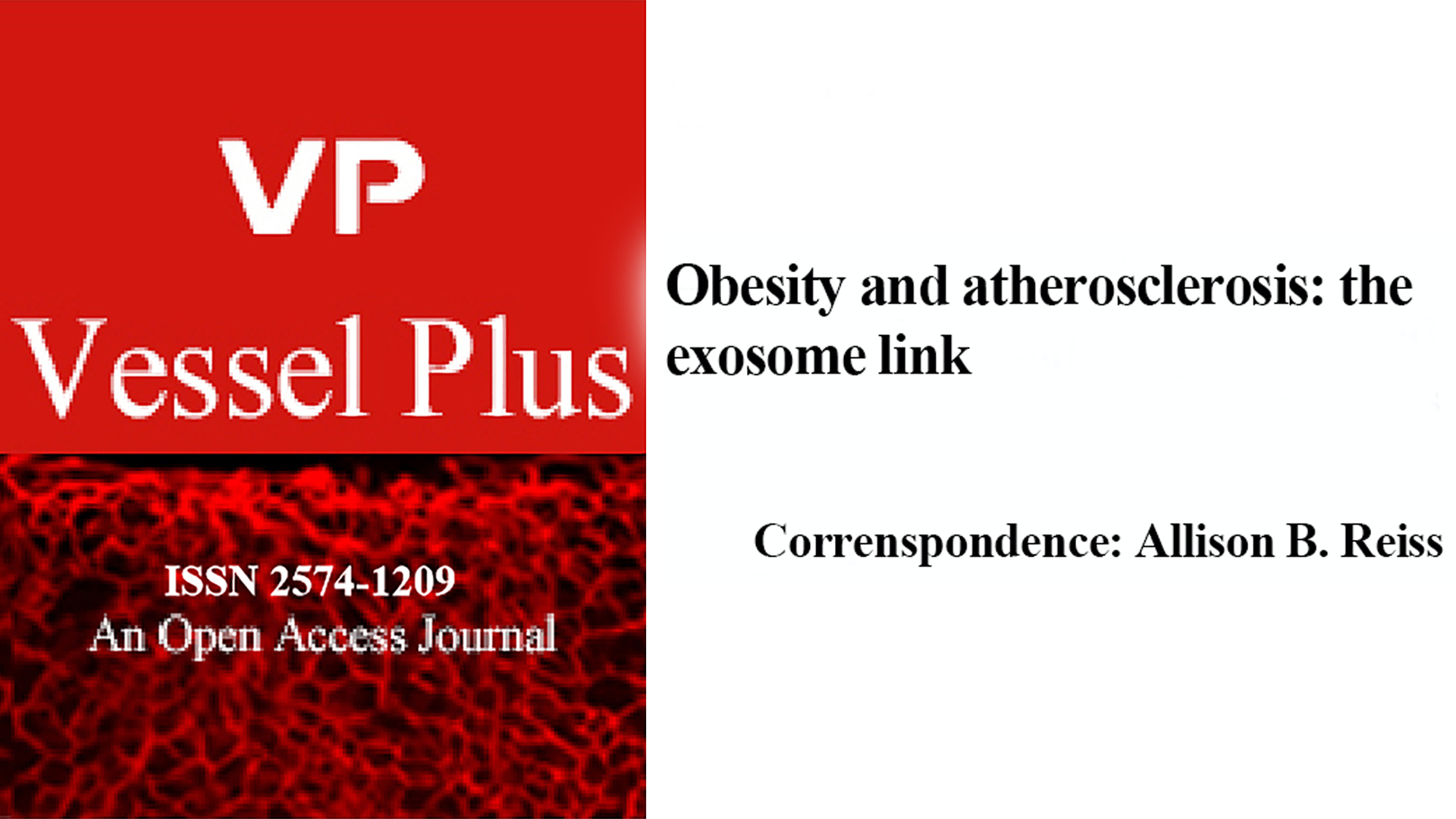Obesity and atherosclerosis: the exosome link
Obesity is a global public health issue with serious health consequences and rising prevalence. It is a risk factor for a broad range of diseases, particularly atherosclerosis and cardiovascular disease. Long-term weight loss is difficult to achieve, even with diet, life-style changes and anti-obesity drugs. The causes of the association between obesity and atherosclerotic cardiovascular disease are the subject of ongoing investigation. It is known that a chronic surplus in nutritional intake results in expansion and remodeling of adipose tissue, leading to chronic inflammation. Lipid overloaded adipocytes secrete pro-inflammatory adipokines and other mediators that produce this inflammatory state that may in turn, promote atherosclerosis, which is considered an inflammatory disorder. This review discusses the potential role of exosomes from adipose tissue in accelerating atherosclerosis in the setting of obesity. Exosomes are small membrane-bound vesicles that circulate in body fluids and are important participants in intercellular communication both locally and at a distance. They can transfer their cargo of protein, DNA, RNA and microRNA between cells, thus impacting cellular function and signaling. Adipose tissue-derived exosomes may be involved in heightening of the atherogenic environment and, if so, suggests a therapeutic target for the treatment and prevention of cardiovascular complications of obesity.
